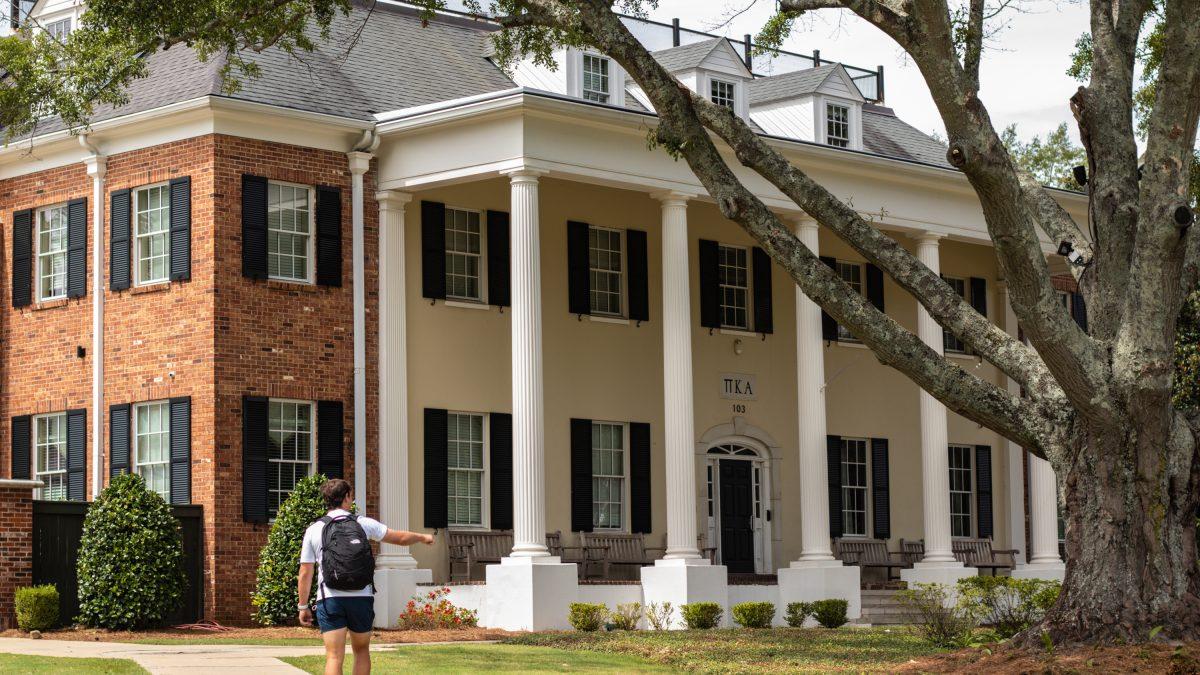Organizational involvement is an important aspect of Mississippi State University’s student culture as it connects individuals from different backgrounds and provides opportunities for students to become further involved in their own interests. However, it can become difficult for a student to gain acceptance into certain organizations due to selective application processes and a lack of inner-organizational connections.
Becoming involved within the fraternity and sorority life on campus heightens your chances of organizational acceptance. This is because affiliates are automatically connected to older members already involved on campus who can provide a lending hand throughout the application and selection process. This concept clearly reflects through the leadership roles elected on campus. For instance, according to the Student Association web page, three out of the four elected Student Association Executive Council members are Greek affiliated.
Coming from someone who used to be Greek-affiliated and specifically handled campus involvement within my sorority, these experiences of inside connections were consistently presented before me because of requirements to be involved in other organizations on campus. If someone knew an executive member of a campus organization from their own Greek organization, the chances of that individual being accepted are significantly higher than a non-Greek affiliated individual. Involvement was based on a set requirement and did not always align with a person’s interest, but rather with the fear of being penalized.
For minority and lower-income students, joining Greek life is not as attainable due to a lack of diversity present and because of the overwhelmingly large price-tag attached to the system. According to MSU’s Office of Fraternity and Sorority Life, the average sorority costs between $2,000 to $3,000 a semester while fraternity prices range between $500 to $2,500 a semester. This does not include the monthly payments which are required to attend social functions.
These aspects block certain groups of individuals from receiving certain connections needed to excel in MSU society and restrains them from achieving personal goals towards their own interests. Emma Lane and Emily Elkas of the University of North Carolina’s Ethics and Policy explain Greek life provides an exclusive social setting and special alumni connections to help them succeed. They go further to say, “Such exclusive access contributes to social stratification on college campuses and beyond.”
Having a Greek-dominated culture eliminates the possibility of different individuals being given the opportunity to make new connections within the community. Any non-Greek individual running for positions such as Student Association President or Homecoming King/Queen are at an automatic disadvantage to those in sororities or fraternities as they lack the substantial number of votes that a Greek student could easily round up in their 300+ member organization. This backtracks MSU from ever seeing a non-Greek affiliated minority or lower-income student hold a leadership position.
Ezra Marcus of the New York Times states that the promise of social and networking connections is a part of the draw towards joining a Greek organization. The automatic assumption that Greek life will help you climb to the top of the pyramid is a part of the problem. With this assumption, minorities or lower-income students may feel the need to find a way to join these organizations and empty their pockets to achieve their campus goals.
As students, we should strive to transform our organizations into ones that prioritize interest and personality over social status and inside connections. Greek life is deeply intertwined within our university, making it unlikely to see any type of abolishment, but we should strive to push these organizations out of the political limelight, so others are awarded the opportunity.
Students at MSU should feel secure in becoming involved on campus without being intimidated by the power the Greek system holds among organizations. We, as students, are the only ones who can make a difference by using our right to vote, voicing disagreement upon disadvantages and pushing towards a campus culture which embraces equality among race, class, sexuality and religion.
Categories:
Greek life connections add a barrier to non-affiliated students when applying for leadership positions
Adam Sullivan | The Reflector
Sorority and Fraternity Row house the Greek life organizations on MSU’s campus. Pictured is the Pi Kappa Alpha fraternity house.
About the Contributor

Payton Brown, Former News Editor
Payton Brown served as the News Editor from 2022 to 2023.
0
More to Discover


















































































